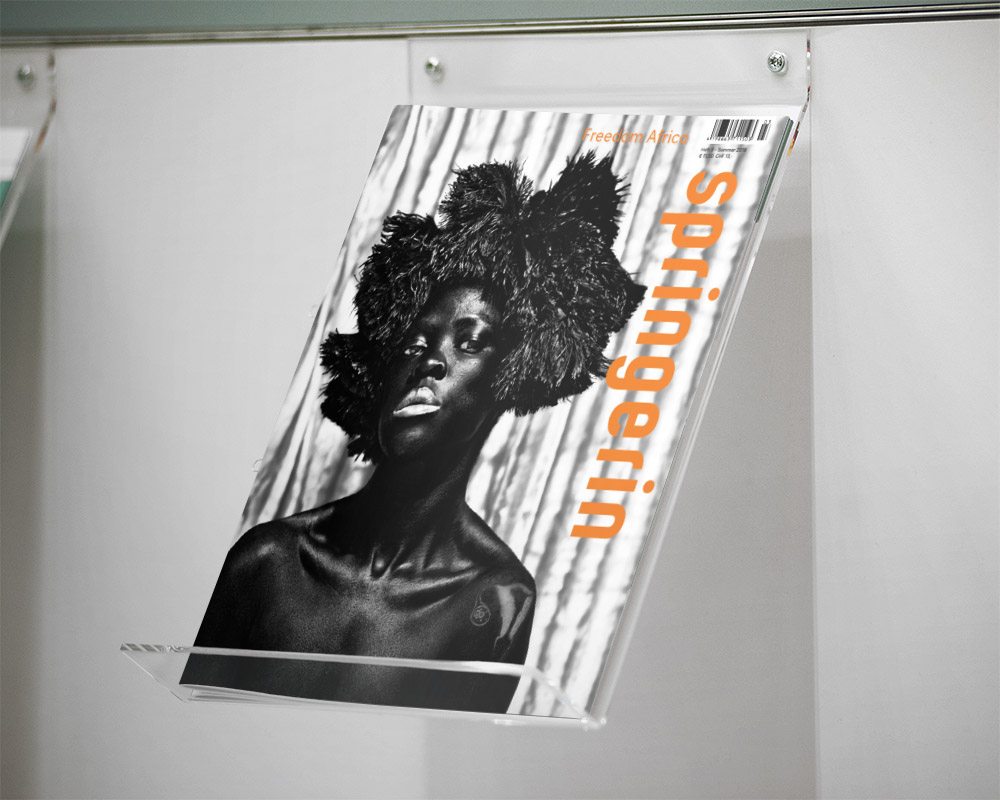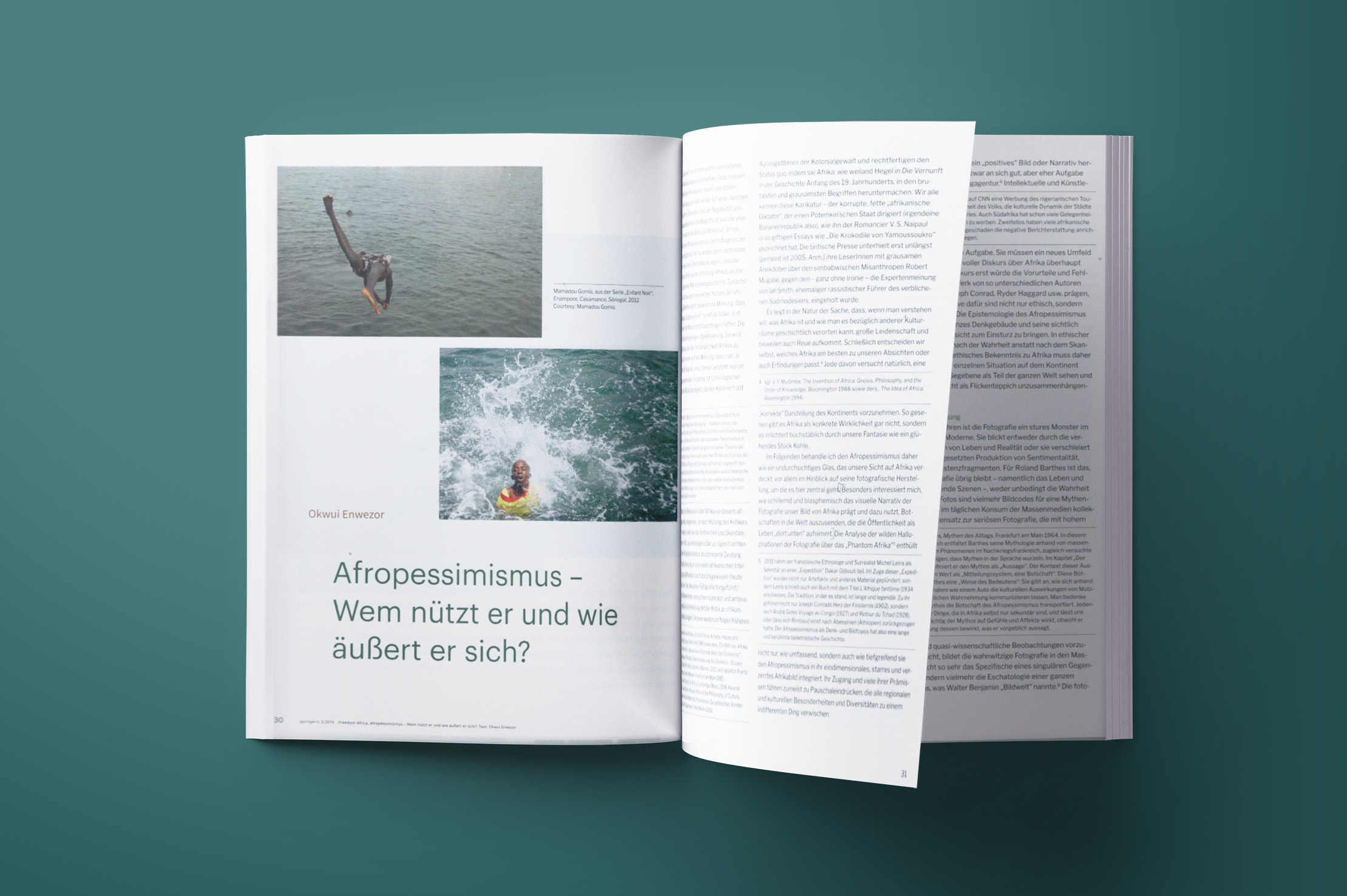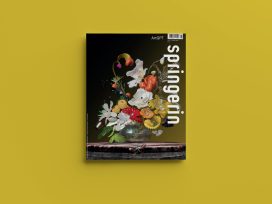How can we avoid the prevailing stereotypes of ‘Africa’? How can we overcome the obsessive association of the continent with certain geopolitical markers? How do we stop seeing it as an endless reservoir of raw materials and a market for cheap goods? The new issue of Springerin develops alternative approaches to the discourse of ‘liberation’.
 Borders
Borders
Cameroonian philosopher Achille Mbembe explores the conditions preventing us from imagining a ‘borderless’ world where mobility is no longer regulated by a discriminatory division between the privileged and non-privileged. In such a world, ‘there would be no visas, no quotas, and no bizarre category to fill, because you would not even have to apply for a visa. One could just get on a plane, a train, a boat, on the road, or on a bike. Rights of non-discrimination would be extended to all.’

Afro-pessimism
Curator Okwui Enwezor, who died in 2019, dedicated his work to confronting ‘Afro-pessimism’ and pushing the geographical borders of art and art history. Springerin pays tribute to Enwezor by republishing his introduction to the exhibition catalogue for ‘Snap Judgments’, featuring works by photographers from across Africa. ‘I’m particularly interested’, he writes, ‘in how the enigmatic and blasphemous narrative of photography shapes our image of Africa and uses it to send out messages to the rest of the world.’
Ethiopia
Annette Baldauf talks to curator Elizabeth W. Giorgis, director of the Gebre Kristos Desta Centre in Addis Ababa, about the challenges confronting her practice. ‘A lack of academic and artistic engagement has contributed to the fact that,’ Giorgis explains ‘in the last twenty years, artists from Ethiopia, in contrast to those from the rest of Africa and the diaspora, were only marginally represented in international art.’ They go on to discuss the connection between terms like ‘Ethiopian’, ‘African’, ‘Black’ and ‘African-American’. ‘The connection is ambivalent,’ says Giorgis, ‘which is why many Ethiopians struggle with it so much.’
This article is part of our 13/2019 Eurozine review. Click here to subscribe to our reviews, and you also can subscribe to our newsletter and get the bi-weekly updates about latest publications and news on partner journals.
More articles from Springerin in Eurozine; Springerin’s website
Published 8 August 2019
Original in English
First published by Eurozine
© Eurozine
PDF/PRINTNewsletter
Subscribe to know what’s worth thinking about.




